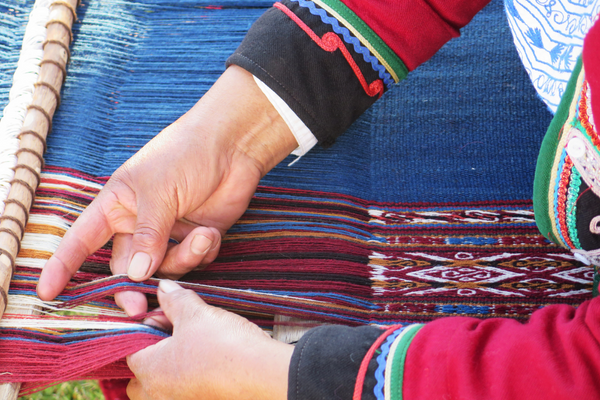CERTIFICATIONS
What are Certifications?
Small Business Administration (SBA) certifications provide eligible business owners, particularly underrepresented or economically disadvantaged founders, access to special resources and revenue opportunities. These certifications promote businesses for exclusive federal contracts to encourage diversity and small business prioritization.
Because SBA certifications can help you gain an advantage and make all the difference when building a small business, it’s important to know which ones are available and work best for you.
Benefits of Certifications
Small business certifications target underrepresented and/or economically disadvantaged business owners. Depending on the program applied for, you could receive access to:
- Funding, grants, or scholarships
- Set aside and sole-source contracts
- Business mentorship and guidance
Certificates create growth and revenue opportunities for groups that often lack equal access to benefits.
CERTIFICATIONS
BUILDING YOUR BUSINESS

Business Development Program
The 8(a) Business Development Program is one of the largest certification programs. Business owners receive benefits for a nine-year term with annual reviews to maintain standing.
The 8(a) program includes opportunities such as:
Set-aside and sole-source contracts with federal entities
Access to a business specialist for federal contracting advice
Ability to form joint ventures in the SBA’s Mentor-Protege program
How To Qualify
Businesses need to be 51% owned and controlled by U.S. citizens who are socially and economically disadvantaged. Other requirements include having a personal net worth of $750K or less, being a first-timer to the 8(a) program, and displaying good character.3
How To Apply
You can apply for the 8(a) program directly through the Certify.SBA.gov website after setting up a business profile on SAM.gov.

Small Business Program
The federal government has a goal to award 5% of all federal contracting dollars to women-owned businesses, and the Women-Owned Small Business (WOSB) program is the aptly named method to achieve that. Participants gain exclusive access to set-aside contracts in industries where women-owned businesses are underrepresented.
How To Qualify
For acceptance into WOSB, businesses must be at least 51% owned and controlled by women who are U.S. citizens and be considered small according to SBA size standards.
How To Apply
You can apply for this program at Beta.Certify.SBA.gov. Once accepted, you must annually attest to meeting the requirements to maintain standing in the program and undergo an SBA examination every three years.

Small Business Program
The HUBZone program assists businesses located in historically underutilized business (HUB) zones and gives access to at least 3% of federal contracting dollars via set-aside contracts. HUBZone small businesses also get a 10% price evaluation preference in contract competitions.2
How To Qualify
Qualifications for HUBZone are more detailed than other small business certification programs. They include meeting small business standards, having a main office in a HUBZone, and having 35% of employees living in a HUBZone.
How To Apply
You can apply for HUBZone using the general log-in system account once you’ve made a profile on SAM.gov. You will need several pieces of documentation depending on your business type to facilitate and expedite the process. Use this checklist. Write a description for this tab and include information that will interest site visitors. For example, if you are using tabs to show different services, write about what makes each service unique. If you are using tabs to display restaurant items, write about what makes a specific dish particularly worthwhile or delicious.

Veteran Owned Small Business Program
A VBE is defined as: At least 51 percent of the business must be directly and unconditionally owned by one or more veteran(s) or service-disabled veteran(s). The veteran owner(s) must have full control over the day-to-day management, decision-making, and strategic policy of the business.
How to Qualify?
Before looking into the qualifications necessary to attain the VOSB certification, let’s go over the requirements, which are intended to help support Veteran-Owned businesses to become successful:
To be eligible for the Veterans First Contracting Program, a business must:
Be a small business according to SBA size standards
Be at least 51% owned and controlled by Veteran who are U.S. citizens
Have Veteran manage day-to-day operations and make long-term decisions
How to Apply
Now that we know the benefits of gaining VOSB certifications, let us look at how to move forward from here. Prior to getting into how to process, a brief note of VOSB certification Cost: It is free, and you can apply DIY if you want. However, as we will indicate below, there are numerous benefits to working with us to receive your VOSB certification.
Regardless of how you proceed, it helps to understand the application process. Let’s go over how to obtain your VOSB certifications on your own.
Step #1: Optional – Prepare Using the Eligibility Quiz below
The VA provides a tool that helps you self-evaluate eligibility: the Veteran-Owned Small Business Certification Eligibility Quiz. This is a self-assessment quiz to determine if you are eligible, as well as gain additional information on what a VOSB certification entails.
Step #2: Required –Start your VOSB verification through the VA CVE.
Create a Sam.gov profile here: SAM.gov.
The Department of Veterans Affairs offers many resources for Veteran owned businesses to help teach them to grow their business and information regarding applying for the VOSB certification. The VA advises that you look over some of these resources to get general tips before applying for VOSB certifications.
Step #3. Required – Filling out the application online
The VA site to apply for VOSB certification: VOSB Certification
Step #4. Required – Maintaining Certification
Firms need to update their certification information with the Department of Veteran Affairs every 3 years to maintain their status with the VOSB Federal Contracting program. For a more detailed outline of the verification process, refer to the VA’s Reverification Process Fact Sheet.

Small Business Program
Ownership by minority individuals means the business is at least 51% owned by such individuals or, in the case of a publicly owned business, at least 51% of the stock is owned by one or more such individuals (i.e. the management and daily operations are controlled by those minority group members.) Definition.
How to Qualify
To qualify for certification you must meet these qualifications:
The business owners must be U.S. citizens
The business must be at least 51% minority-owned, operated, and controlled. (Per the NMSDC, a minority must be at least 25% Asian, Black, Hispanic, or Native American. Also, minority eligibility is established through screenings, interviews, and site visits. For publicly owned businesses, at least 51% of the stock must be owned by one or more minority group members.)
The business must be for-profit and physically located in the U. S. or its territories.
The minority owners must also participate in the daily management and operations of the business.

Small Business Program
The Office of Native American Affairs mission is to ensure that American Indians, Alaska Natives and Native Hawaiians seeking to create, develop and expand small businesses have full access to the necessary business development and expansion tools available through the Agency's entrepreneurial development, lending and procurement programs.
Contact John Lewis, program manager, at JohnL@sbfca.org or (505) 514-8327 for more information on our certification program.
